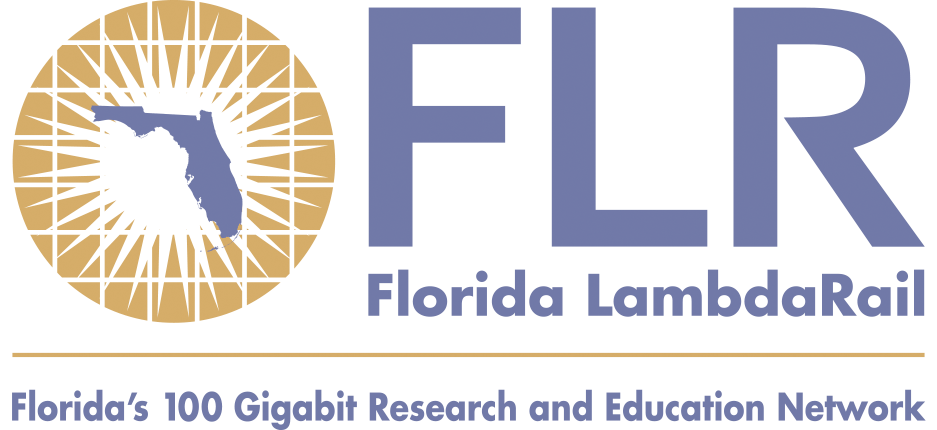Florida LambdaRail’s (FLR) Regional Science DMZ is the basis for The Atlantic Research Platform (ARP), a science driven, high capacity data exchange and transport facility that links campuses to other regional, national and global science DMZs.
First developed by ESnet, the Science DMZ concept features a network architecture designed specifically for the support of data-intensive scientific and research applications outside and away from standard Internet traffic. The FLR Regional Science DMZ and ARP provide participants the ability to extend and interconnect campus research, high-performance computing, and instructional technology environments to the global research and education networking fabric. The FLR Regional Science DMZ was established utilizing internal funding from its member institutions to support and enable institutional research initiatives via high speed networking. It was first operationalized in 2015 upon the completion of a network upgrade to 100G. Since that time, FLR partner institutions have worked to improve their campus networking environments where today four Florida universities – The University of Florida, Florida State University, the University of Miami, and the University of South Florida – have connected to the FLR Science DMZ. Four additional institutions – Florida Atlantic University, Nova Southeastern University, Florida Institute of Technology and The University of North Florida – are pursuing campus network upgrades and are expected to connect soon.
Utilizing the capabilities of the Internet2 Advanced Layer 2 Services Network, the FLR Science DMZ now peers with the West Coast Regional Science DMZ called the ‘Pacific Research Platform (PRP)’ thereby extending the Science DMZ concept from coast to coast. The Pacific Research Platform is a National Science Foundation funded initiative to support high speed science traffic on a large regional scale throughout the West. This connection to the PRP provides optimal low latency national connectivity between sites engaged in research.
Conversations over the past two years have taken place among interested institutions regarding the need to establish a National Research Platform combining and extending regional research platforms such as the PRP and the FLR Regional Science DMZ to establish a true national standard. FLR’s connectivity with the PRP is just one example of innovative institutions making advancements on behalf of their partners in furtherance of national networking goals for research and education.

